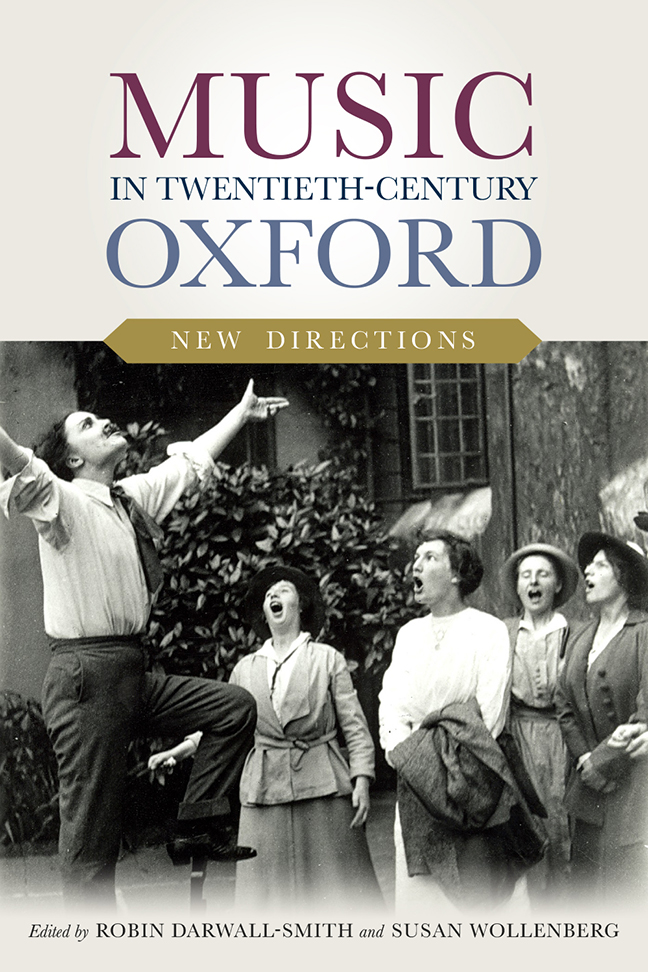7 - The Balliol Concerts
Published online by Cambridge University Press: 09 January 2024
Summary
In her Oxford detective novel Gaudy Night (1935), Dorothy Sayers conjured up the scene in which Lord Peter Wimsey and Harriet Vane attend one of the prestigious Sunday evening recitals in Balliol College Hall:
Masters, undergraduates, visitors; they sat huddled close together on the backless oak benches, their elbows on the long tables, their eyes shaded with their fingers, or turned intelligently towards the platform where two famous violinists twisted together the fine, strong strands of the Concerto in D minor. The Hall was very full; Harriet's gowned shoulders touched her companion's and the crescent of his long sleeve lay over her knee. He was wrapt in the motionless austerity with which all genuine musicians listen to genuine music.
From the evidence in Sayers's description as it continues, the event on which the passage quoted above was modelled has been dated to 26 May 1935. The ‘two famous violinists’ playing J.S. Bach's double violin concerto in Sayers's account of that Balliol concert were a reference to the d’Arányi sisters, the Hungarian-born Jelly d’Arányi and her older sister, Madame Adila Fachiri, great-nieces of Joseph Joachim, celebrated violinist and friend of Brahms. In fact (as opposed to fiction), from the extant evidence, the Balliol programme for that date did not include the Bach double, although Jelly d’Arányi and Adila Fachiri played a ‘Bach sonata’. However, in October 1937 a Balliol concert featured the sisters, accompanied by Sydney Watson, in a ‘superb performance of Bach's Concerto in D minor for two violins’: this concert was specially recalled by Edward Heath (then organ scholar at Balliol). After the sisters had played in England in 1909, they ‘settled there four years later, becoming well known for their performance of Bach's Double Violin Concerto’, which apparently they performed in public for the last time as late as 1960. Their names recur in the annals of Oxford's twentieth-century concert life, and they participated in the Balliol concerts on numerous occasions, discussed further below.
Edward Heath's memories of attending the October 1937 concert convey the intensity of the experience:
Never before or since, not even with the Oistrakhs, father and son, have I heard the slow movement [of the ‘Bach double’], one violin answering another, so beautifully phrased and sustained. One did not miss the orchestral accompaniment.
- Type
- Chapter
- Information
- Music in Twentieth-Century OxfordNew Directions, pp. 119 - 135Publisher: Boydell & BrewerPrint publication year: 2023

